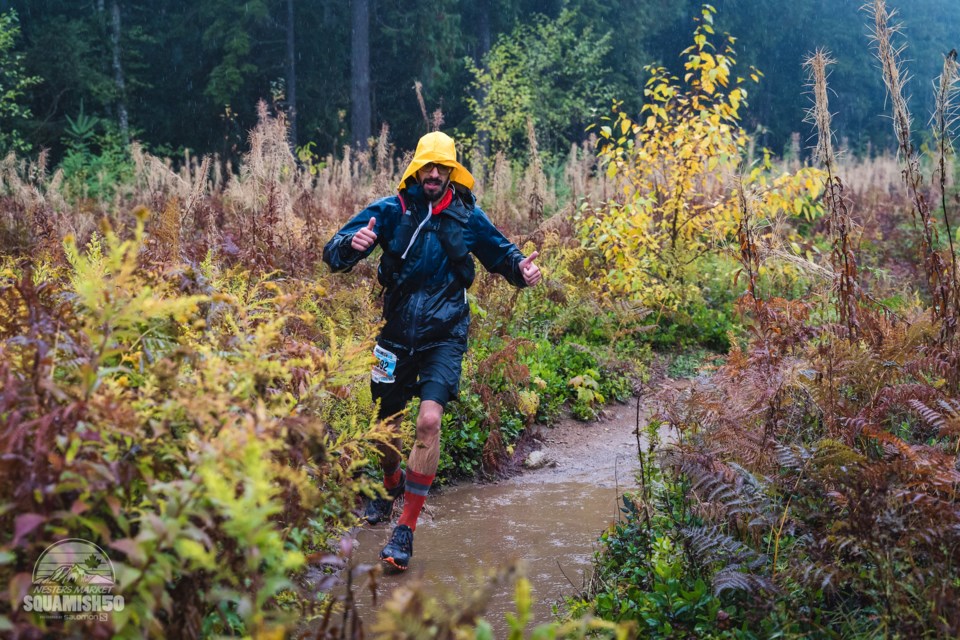For the first time since 2019, the is taking its rightful place in the Sea to Sky's sporting calendar.
The race was cancelled due to the COVID-19 pandemic in 2020, while a scaled-back version took place in late October last year, right in the middle of an atmospheric river.
But with restrictions reined in and events popping back up, this year's race weekend will feature the 50-miler on Aug. 20 and the 50-kilometre and 23-kilometre options on Aug. 21.
Gary Robbins, who serves as co-race director with Geoff Langford, is thrilled to see the Squamish 50 back in its traditional slot. Robbins noted that CMTR's events held already this year have seen significantly lower attrition rates and a greater sense of gratitude to take part.
"Seeing the emotions that people harbour around the races and around the finish line, we realize that it was more fickle than we ever thought it could be, and that has only made it more special coming out of [the pandemic], to be able to get together with our community again and to celebrate that thing that we love," Robbins said.
To mark the race hitting double digits, organizers boosted the registration cap significantly to 2,000 participants, up from a previous high of 1,500. That also means a new high for the race's contribution to the Squamish Off-Road Cycling Association — upwards of $26,000.
The most significant challenge to organizing in today's world, Robbins explained, is that many of the race series' longtime suppliers did not survive the pandemic, creating logistical headaches on myriad fronts.
"Everything is more expensive and harder to come by than it's been previously," he said, noting changes in vendors ranging from bus services to rental agencies. "When we are renting things, they're coming from much farther away, so the cost has really gone up exponentially."
Robbins acknowledged some doubt that CMTR would make it through the pandemic unscathed, but credited a quick shift to virtual events — holding four over the course of 18 months — with keeping the company viable.
"A couple of years ago, when this all started to unfold, none of us really knew what was in front of us at that point in time. Myself and my family, we had literally just purchased our first-ever home, and all of a sudden, our main revenue stream was severed," he said.
"During the pandemic, these virtual events became a thing, and we were very fortunate that we found lightning in a bottle doing scavenger-hunt-style virtual running events."
Robbins noted that the virtual events helped introduce CMTR events to a new audience, which is now showing up to the start line.
"The majority of the people who took part in our virtual events weren't necessarily people who had attended our on-the-ground events prior to that," Robbins said. "We established some connections with some new people.
"I can relatively confidently say that a percentage of those people have now come into our space on the physical event side of things through being introduced to us on the virtual side of things."
For more information, visit .
**Please note, this story was updated after it was posted to remove a part of a quote that was unclear.




